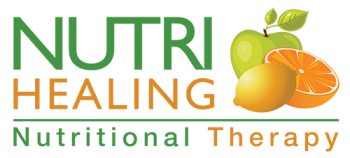What is Gout? - April 2011
What is Gout?
Gout is a form of joint inflammation, which is caused by high levels of uric acid in the blood causing crystal deposits in the joints. It is very common in the big toe but can also affect other joints and the kidneys.
The vast majority of gout sufferers are men but more and more women are beginning to suffer gout. Eating overly rich food can trigger an attack; typically this would include shellfish, cheeses (Stilton), port, red meat and red wine. Occasionally an accident or trauma to the body can precipitate an attack.
In the 18th century you were considered fortunate to develop gout as they thought this prevented you from contracting fatal diseases. It was seen as a rich person's disease because only those who could afford large amounts of meat, cheese and wine were likely to suffer.
Symptoms:
Deposits of uric acid crystals in the joint cause the sudden development of intense pain in a joint, which appears red and swollen, feels warm, and is very tender to the touch. Sometimes there is also a low-grade fever. The area can be so sensitive that the slightest pressure from walking or even the weight of bed sheets can cause severe pain.
What causes Gout?
An excess of uric acid which is a chemical; this chemical is a natural part of the normal breaking down and building up of food and body tissues.
So excess is caused by:
- An increase in production by the body
- By under-elimination of uric acid by the kidneys
- By increased intake of foods containing Purines, which are metabolized to uric acid in the body.
Purine is a product of protein breakdown that causes a high level of uric acid in the blood.
What Causes Gout Pain?
The condition of raised blood uric acid is called hyperuricaemia. When this is present the uric acid which is normally dissolved in the blood may, from time to time, form microscopic crystals in the joints leading to acute Gout attacks. Uric acid may also collect under the skin as tophi (chalk coloured nodules) or in the urinary tract as kidney stones.
Treatment for Gout
Treatment is therefore aimed at controlling uric acid in the blood and involves weight loss where appropriate, reduction or elimination of alcohol intake, and avoiding foods which increase the production.
Foods to avoid
- Foods that are high in purine include all meat, crab, herrings, anchovies, mackerel, sardines, roe, scallops, game, offal, stock cubes, and meat extracts.
- Vegetables high in purine include asparagus, cauliflower, spinach, and mushrooms.
- Full fat cheeses especially Stilton and goat's cheeses.
- Alcohol: Limiting alcohol intake, particularly beer, to one drink per day or less can reduce the number of attacks of gout.
- Sugar: Refined sugars, including sucrose and fructose, should be restricted, because they raise uric acid levels: cakes, biscuits.
- Yeast - nutritional yeast and brewer's yeast: These foods can raise uric acid levels.
Foods to eat
- According to a study of 12 individuals with gout, eating one-half pound of cherries or the equivalent amount of cherry juice prevented attacks of gout. Black, sweet yellow, and red sour cherries were all effective as they help excretion of uric acid.
- Pineapple, blueberries, blackberries, and bilberries - in fact all berries.
- Vegetables - alfalfa, celery, quinoa, millet, brown rice, and pastas made from corn, rice potato, nuts, seeds, grains and buckwheat flours.
- Organic eggs, soya tofu and lamb should not cause any problems.
- Drink plenty of water to encourage excretion of uric acid.
Useful remedies
Herbs
- Ginger, Curcumin, Boswelia - powerful anti-inflammatory properties
- Nettle tea is useful to help with excretion of uric acid.
- Devils claw 400mg 3 x a day for at least 3 months or more - do no take if pregnant.
- Supplements
- Vitamin C - 1-2 grams a day
- Kelp, Alfalfa - taken daily
- Folic acid - A few studies indicate that large amounts of supplemental folic acid may reduce uric acid levels; the research is mixed.
- Quercetin (50-250 mg three times per day [taken between meals]): This flavonoid inhibits an enzyme, which controls the rate of uric acid synthesis. Quercetin also has shown anti-inflammatory effects in test tube studies.
Lifestyle changes
- Change your diet
- Loss weight if overweight - Individuals who are overweight are at greater risk of developing gout.
